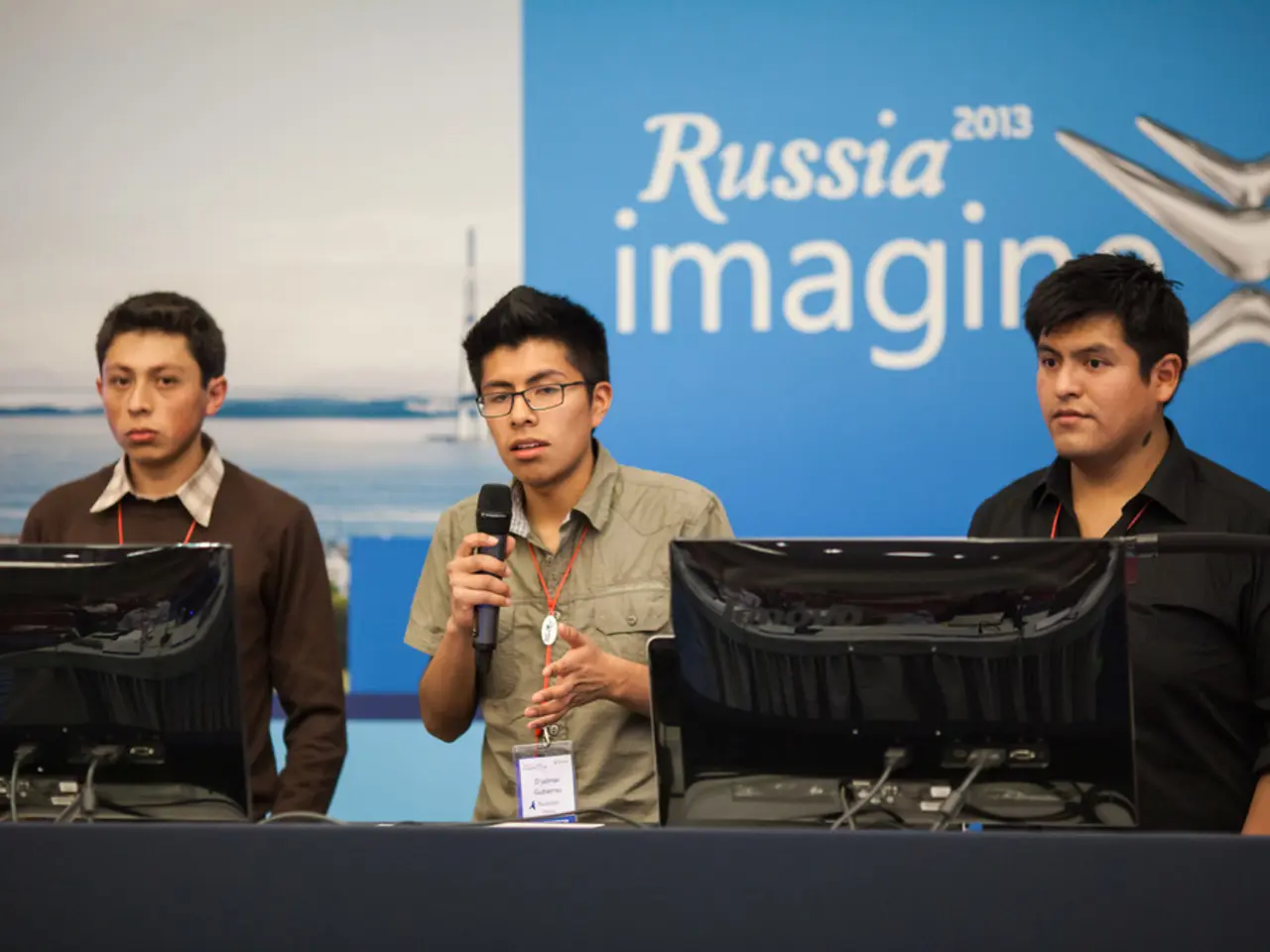Adopting a forward-thinking approach instrumental for modernizing federal government operations
In the heart of Washington, D.C., the Trump Administration is embracing an "innovator mindset," modernising public services and tackling complex challenges using emerging technologies. This push is particularly evident in the Administration's 2025 AI Action Plan, which aims to accelerate AI innovation, infrastructure, and international leadership [1][3].
The House of Representatives has taken a step forward in this direction, passing the bipartisan Fix Our Forests Act (H.R. 471), which includes the Wildfire Tech Demonstration, Evaluation, Modernization, and Optimization (DEMO) Act. Meanwhile, the Senate is currently considering the companion bill to the Wildfire Tech DEMO Act [2].
AI adoption in federal procurement is marked by a series of key initiatives. These include updating procurement guidelines to ensure contracts are awarded only to large language model developers that meet objectivity and unbiased criteria. Additionally, there are formal interagency collaborations through a Chief AI Officer Council and an “AI procurement toolbox” under the General Services Administration (GSA) to standardise federal adoption and compliance with privacy and transparency laws [1].
Quantum technology, while not as widely discussed, is typically integrated within broader innovation and technology infrastructure development efforts. Federal agencies such as the Department of Defense (DoD) and the National Institute of Standards and Technology (NIST) are involved in comparative assessments and setting standards across emerging technologies, likely including quantum initiatives, to maintain U.S. competitive advantage [1].
Congress plays a critical role in shaping technology adoption in the public sector. They typically authorise funding and oversight for AI and quantum research and procurement programs, legislate policy frameworks that govern data privacy, security, and ethical AI deployment, hold hearings, and provide bipartisan guidance to balance innovation with public accountability and safety. They also influence regulatory environments to ensure alignment between federal goals and state-level regulations [2].
Several policy initiatives emphasising near-term application development and creation of testbeds to safely test and deploy these technologies have stalled in the last Congress. However, these technologies can also help alleviate supply chain strain for port operations and aid in wildfire management. The FedRAMP 20x efforts aim to drive efficiencies in procurement and government contracting on the civilian side of government [2].
Marsha Blackburn (R-Tenn.) and Rep. Young Kim (R-Calif.) have led the charge in the Senate and House respectively, reintroducing bills related to creating sandbox programs and accelerating near-term quantum applications for the Defense Department. A recent executive order tasks the secretary of Defense with modernising acquisition processes to expedite innovation in the defense industrial base [2].
In conclusion, the current status of emerging technologies like quantum and AI adoption in U.S. public sector procurement is marked by a strong federal government push, especially under the Trump Administration's 2025 AI Action Plan. This strategy is centred on rapid, coordinated adoption of AI and potentially quantum technologies in government procurement, supported by regulatory streamlining and interagency collaboration, with Congress positioned to provide essential backing and oversight in these areas.
| Aspect | Current Status & Plans | Role of Congress | |--------------------------|----------------------------------------------------------------|------------------------------------------| | AI Adoption | Active federal push with updated procurement guidelines, AI councils, unified procurement tools, and pilot programs across agencies [1][3] | Funding, legislative frameworks, oversight, regulatory alignment with states [2] | | Quantum Technology | Integrated in broader federal tech assessments and standardization efforts by DoD, NIST (implied) | Similar roles in funding and regulation, promoting innovation and national security | | Congressional Role | Not detailed in search results but traditionally includes funding, oversight, legislation, and harmonization with state policies [2] | Critical enabler and watchdog in procurement and technology policy |
References: [1] White House (2019). Artificial Intelligence (AI) Initiative [2] Congressional Research Service (2020). Artificial Intelligence (AI): An Overview [3] U.S. General Services Administration (n.d.). Artificial Intelligence (AI) Strategy
- The Trump Administration's push for modernizing public services and tackling complex challenges using emerging technologies, such as AI, is being supported by the House of Representatives, who have passed the bipartisan Fix Our Forests Act, which includes the Wildfire Tech DEMO Act.
- The federal workforce is being reimagined as AI adoption in federal procurement is marked by a series of key initiatives, including updating procurement guidelines and forming interagency collaborations like the Chief AI Officer Council.
- Policy-and-legislation play a critical role in shaping technology adoption in the public sector, as Congress influences regulatory environments, authorizes funding, and provides oversight for AI, quantum research, and procurement programs, ensuring alignment between federal goals and state-level regulations.




